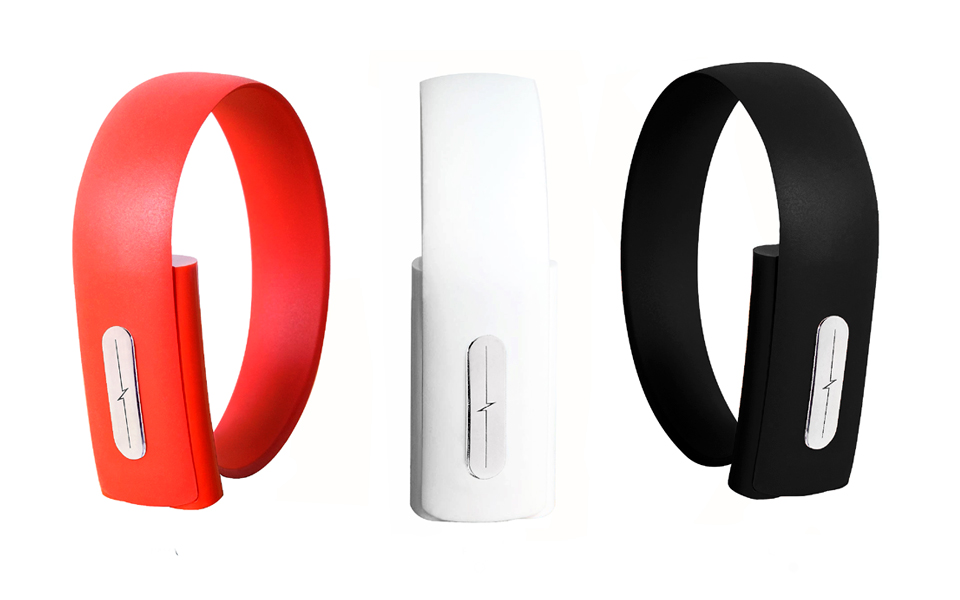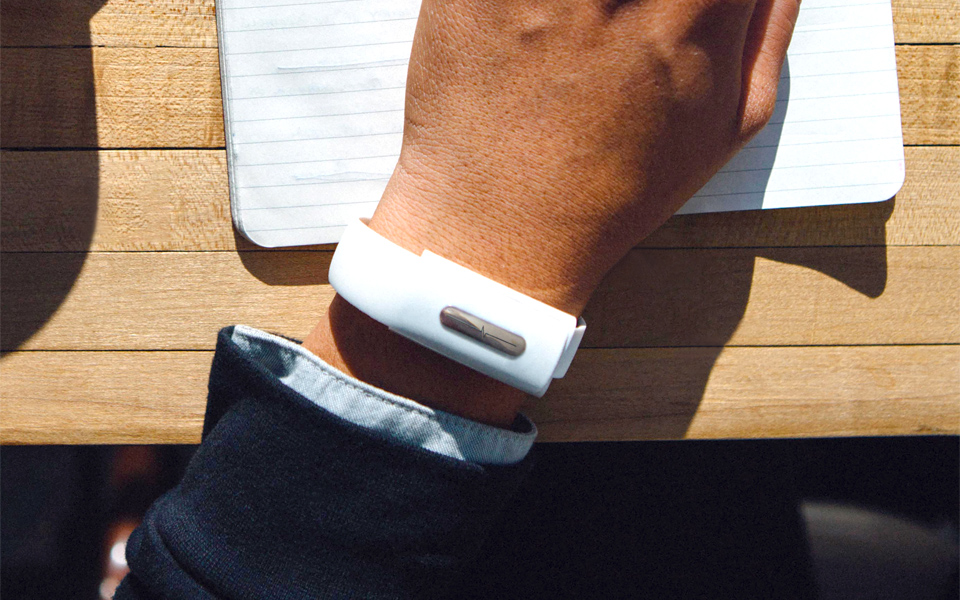She was just 25 years old, a PhD student at the University of Toronto, when she discovered a new scientific field in biometrics: identifying people using their heartbeat. Thus, a new business operation was born. Foteini Agrafioti created a bracelet, the Nymi, which turns a user’s pulse into a password to automatically unlock computers and mobile phones. And while Nymi has begun to circulate in the Canadian market and the US, she left this project to devote herself to research once more.
Now Agrafioti is chief innovation officer at Toronto-based Architech Labs, which creates innovative technologies that try to make computers think like humans. A native of the northern Greek town of Kozani, she is a graduate of the University of Crete. Recently, Agrafioti was back in Greece to share her experiences at the StartSmart Congress, an event organized by the MIT Enterprise Forum to inform and develop the Greek technological business community.
In short you were what they call a whizz kid. I liked computers. My dad had a piggy bank for me to put money into every time I went on the internet, because back then the connection was very expensive.
So computer use was restricted in your home? I used the internet when my parents were out. They were both high school teachers: my father was a mathematician and my mother an economist. Recently I was in Kozani and I remembered how my dad taught me math. We’d lie down under the dining room table and write on the wood. I didn’t like math, and he tried to make it a game.
How did you get the innovative idea to use cardiograms as ID? My research began when I read an article in a journal saying that everyone’s cardiogram is different.
Foteini Agrafioti created a bracelet, the Nymi, which turns a user’s pulse into a password to automatically unlock computers and mobile phones.

“I acknowledge that all my education was provided for free and I would like to find a way to help inventions that start from Greek universities”
Does the pulse of our heart remain recognizable regardless of our emotions? No, it changes. I spent two years at the university trying to remove these changes from the signal, so that the computer recognizes you regardless of how you feel.
So could our cardiogram be used in a lie detector test if it falls into the wrong hands? The Nymi bracelet does not recognize emotions at all. Nevertheless, this question bothered me when I started to tell the market about this new technology. That’s why we designed the technological systems in a manner that protects human dignity. The only one who has access to sensitive information is the user.
And if a bracelet is stolen? It cannot be activated unless you kidnap the user too! This is the positive point about cardiograms. It won’t work unless you yourself are present. Meanwhile with fingerprint recognition technology, there have already been many cases of finger amputations to steal cars in South America.
Why not just carry on using passwords? Because now they’re easier to crack. The bracelet is safer. You can also use it to pay for your coffee – already in Toronto there is a pilot program in partnership with a bank – or to unlock a door. If you have the Nymi, you can leave your house without your keys and wallet.
Why are you not wearing one today? Because it cannot be used in Europe yet.
What does your current research focus on? Emotion recognition. A camera captures the subtle changes in our facial color and a computer processes the algorithms. If the computers manage to recognize our emotions, it can improve our daily life. Imagine coming home and it knows you’ve had a bad day. The computer could automatically change the music and choose relaxing lighting.

Will they be able to recognize the emotions of those around us? That will be our own choice. Currently my grandmother lives far from us and I’d like to know if she’s well.
Would you use a camera to keep track of her? Yes, and she could disable it if she wanted to. I agree, however, that this technology is more dangerous if it falls into the wrong hands.
What else can this technology understand? It could be useful for things like depression. People produce a lot of information now which can be recorded – cardiograms, videos, social media posts – and a computer can analyze all the data in a short time and find correlations. For example, maybe the amount of messages someone receives combined with the fact that it’s Wednesday afternoon and raining creates stress. Isn’t it better to know that so you can change something?
Will computers make humans redundant in the future? No. They could never make decisions they’ve not been asked by a human to make.
Would you like to help Greece now? Yes. I acknowledge that all my education was provided for free and I would like to find a way to help inventions that start from Greek universities.
Is there a link between the academic and business community in Greece? None. I think the mindset is wrong. I think if you ask a Greek student in the Department of Electrical Engineering what their dream is, they’ll answer: “To work for Google.” The corresponding student in the US would say they want to build the next Google.











